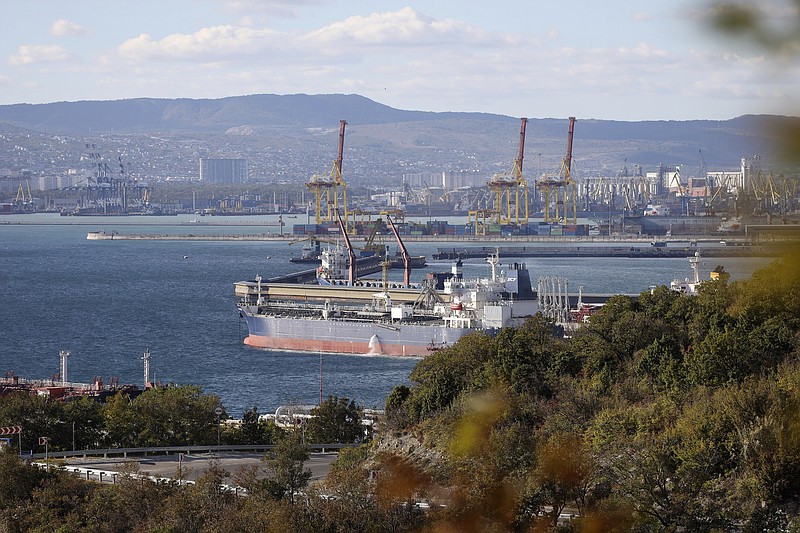By RAF CASERT, FATIMA HUSSEIN and DAVID McHUGH
Associated Press
BRUSSELS (AP) -- The European Union reached a deal Friday for a $60-per-barrel price cap on Russian oil, a key step as Western sanctions aim to reorder the global oil market to prevent price spikes and starve President Vladimir Putin of funding for his war in Ukraine.
After a last-minute flurry of negotiations, the EU presidency, held by the Czech Republic, tweeted that "ambassadors have just reached an agreement on price cap for Russian seaborne #oil." The decision must still be officially approved with a written procedure but is expected to go through.
Europe needed to set the discounted price that other nations will pay by Monday, when an EU embargo on Russian oil shipped by sea and a ban on insurance for those supplies take effect. The price cap, which was led by the Group of Seven wealthy democracies and still needs their approval, aims to prevent a sudden loss of Russian oil to the world that could lead to a new surge in energy prices and further fuel inflation.
Poland long held up an agreement, seeking to set the cap as low as possible. Following more than 24 hours of deliberations, when other EU nations had signaled they would back the deal, Warsaw finally relented late Friday.
There is a big risk to the global oil market of losing large amounts of crude from the world's No. 2 producer. It could drive up gasoline prices for drivers worldwide, which has stirred political turmoil for U.S. President Joe Biden and leaders in other nations. Europe is already mired in an energy crisis, with governments facing protests over the soaring cost of living, while developing nations are even more vulnerable to shifts in energy costs.
But the West has faced increasing pressure to target one of Russia's main moneymakers -- oil -- to slash the funds flowing into Putin's war chest and hurt Russia's economy as the war in Ukraine drags into a ninth month.
U.S. National Security Council spokesman John Kirby told reporters Friday that "the cap itself will have the desired effect on limiting Mr. Putin's ability to profit off of oil sales and limit his ability to continue to use that money to fund his war machine."
Putin has said he would not sell oil under a price cap and would retaliate against nations that implement the measure.
European leaders touted their work on the price cap, a brainchild of U.S. Treasury Secretary Janet Yellen.
"The EU agreement on an oil price cap, coordinated with G7 and others, will reduce Russia's revenues significantly," said Ursula von der Leyen, president of the European Commission, the EU's executive arm. "It will help us stabilize global energy prices, benefiting emerging economies around the world."

